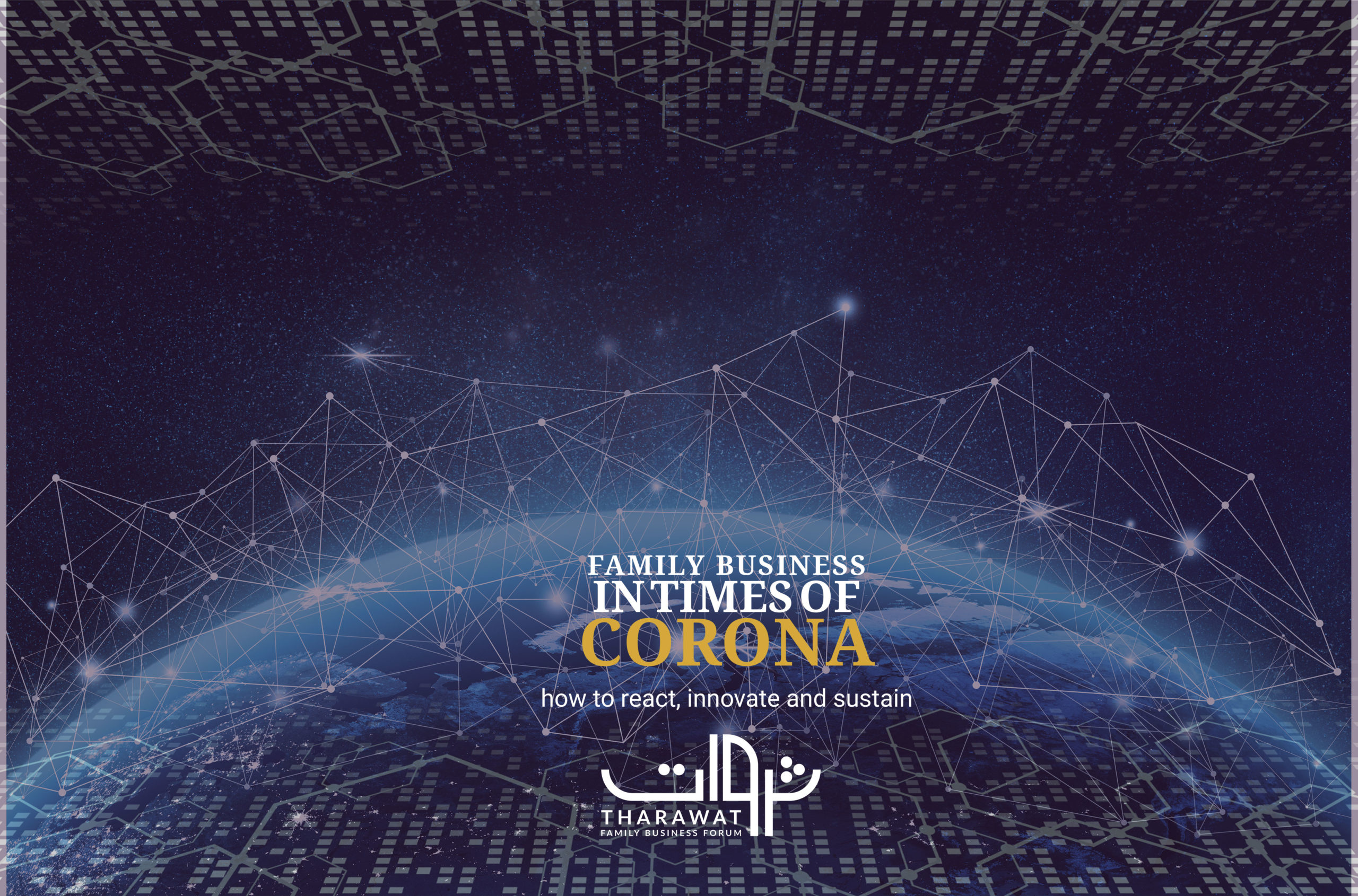
Building on Strengths through the COVID-19 Outbreak
By Noor Sweid, Global Ventures
As the world works to keep this pandemic in check, the family business community must grapple with new operational paradigms. For many, this means the slowing down or stoppage of operations altogether, at least for the time being. Data-scientists are quick to point out that the true impact of COVID-19 currently exceeds the rate of the infection’s spread. Uncertainty and panic are impacting hundreds of millions more than the virus itself[1]. In the months to come, organisations will be able to put exact figures on the toll of conducting business through this challenging period. I believe the temptation to address lost revenue most simply by cutting costs will be a missed opportunity.
Family businesses should instead use this time to look for ways not to cut costs by becoming more efficient. Yes, this might mean trimming some costs, but cost-cutting itself shouldn’t be the main objective. Instead, businesses should focus on the value they add as a company. They should put their energies into strengthening those aspects while moving away from activities that do not serve their core purpose. This might mean more investment – not less – in the people and mechanisms that move their organisations forward. Investing during a downturn is something that businesses generally shy away from, but I believe this is the perfect time to build on strengths and put money into the future.
Even with the looming uncertainty, organisations should consider the following while they contemplate tomorrow’s trajectory:
Embrace technology.
I believe one of the biggest value-adds to any business is that of AI and machine learning. Not only will the predictive ability of these technologies serve organisations well through these uncertain times, but they will also deliver real benefits when normalcy returns.
Machine learning is generally under-utilised in the MENA. I think it deserves much more attention.
Look outward.
Observe and learn. It’s natural at this point for business owners to be thinking about how they can cut costs and sustain themselves, but it’s also the right time to look at what the competition is doing, especially if they seem to be in a better position. What have these organisations done differently over the past five years? What technologies have they implemented? What operations have they streamlined and what businesses have they consolidated? Now is a perfect time to adjust best practices, based on the factors that have enabled other businesses to respond in a positive way.
Identify strengths.
Over the course of a business’s lifecycle, its leadership might lose sight of the business’s unique value proposition. However, customers, especially new customers, are always looking for this value – they make their choices based on their perception of it.
Family business leaders must ask themselves what their business would look like if they built it from scratch right now.
What value would their business bring if another company acquired it? What new technologies might increase this value?
Coming out on top a year from now, or even five to ten years from now will depend on whether or not businesses can focus on their strengths – the factors that will allow them to grow even through this time of struggle. We’ve seen economic slowdowns before. Tremendously successful companies, including Airbnb, which is currently worth around $31 billion[2], were built in the wake of the last financial crisis. Back in 2008-2009, many new businesses approached their models with zero sunk costs and figured out how to build their operations if conditions were ideal. To ensure their sustainability, businesses will have to come out of this in a position of strength for a variety of reasons, not the least of which is that they’ll have to compete with companies starting today – the next Airbnb, for example.
Yes, it is a challenging time, but the world is pulling together and adapting to meet those challenges. The global wakeup call that is COVID-19 extends to all businesses. As such, family business leaders must identify the direction their businesses need to go regardless of sunk costs, and invest in the strengths that will get them there.
Noor Sweid is the founder of Global Ventures, a UAE-based, growth-stage venture capital firm investing in emerging markets. Previously, Noor was the Chief Investment Officer at The Dubai Future Foundation, where she spent time developing the technology and innovation ecosystem in Dubai, and a Managing Partner at Leap Ventures, a growth-stage venture capital firm based out of Dubai and Beirut.
In 2005 Noor joined her family business, Depa, where she implemented best-practice corporate governance and enabled the scaling of the business tenfold in three years to reach US$600 million in revenues, then leading the IPO in April 2008 on the LSE and the NASDAQ Dubai.
